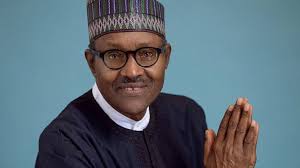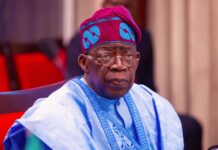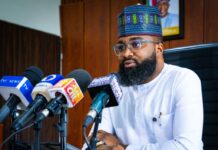We need a Digital MOC that is abreast of these current ICT ecosystems and one who understands that ICT is now the bedrock of national development and economic growth.
The immediate past minister of communication (MOC), in the first term of the President Mohammadu Buhari’s government, Barrister Adebayo Shittu, performed woefully. Many in the industry, including those in the media, agree on this point.
The industry was not surprised, at his monumental failure. Many knew he was not going to do well, going by his body language and pronouncements in his first few days, after he assumed office. He had confessed he was not a digital native, but a stranger. That was honest enough. But no one expected him to so disappoint the way he did.
We had expected that as a political appointee, who did not have knowledge of the industry, he was coming to oversee, he would immediately surround himself with experts and fraternize with those who can help him achieve the goal of developing ICT in Nigeria. But he did not seem to have done that. His motives appeared different.
For the four years he was in the saddle, his imprint was in the stories of his many oversees travels to attend one ICT event or the other, and how he was allegedly amassing funds to fuel his gubernatorial ambition in his home state of Oyo. There were also stories of how he denied his aides what was their due.
In this second term of the President Muhammad Buhari government, the ICT industry does not need one that is like Shittu. It needs someone in the mode of a Dr Omobola Johnson, a digital MOC. Johnson, who was the predecessor of Shittu was poles apart in her knowledge of the industry and its various perspectives. She did not only have knowledge of global trends, she knew about their workings. She was purposeful in the manner she attended to her tasks and she initiated innovative programmes to move the industry forward. Wherever she went to represent Nigeria, she was a pride of a nation. That is the kind of person that the ICT industry needs at this time.
President Buhari should not cave in to politicians who would insist that only members of his party are qualified to be given ministerial positions in his administration. Even, if he had to cave in in the appointment of ministers to other ministries, he should be advice on the need to exempt the MOC from such influences. ICT drives national development; it is the new oil. With Artificial Intelligence, Smart cities or innovative cities, Big Data, Internet of Things and 5G adoptions worldwide, we need a Digital MOC that is abreast of these current ICT ecosystems and one who understands that ICT is now the bedrock of national development and economic growth. Our security and the fight against corruption would be more purposeful and achievable through the use of ICT platforms and applications.
Recently, eWorldNews had cause to interact with directors and top management staff of the Ministry of Communication, and it was astounded at the level of human capacity that resides there. The current MOC directors and top staff are adequately qualified in terms of academic qualification, and from the contributions they made at the ministry’s three-day workshop on various topical issues in the industry, they showed how current they are and determined to make Nigeria join the comity of digital nations.
The ICT industry does not need one that is like Shittu. It needs someone in the mode of a Dr Omobola Johnson, a digital MOC.
All they require is a purposeful and equally knowledgeable MOC, a team leader that has the will and the national interest to provide leadership.
The various MDAs under the ministry would also require a digital MOC, one who has clout and can easily and courageously marshal points and arguments before his colleagues and the presidency in achieving imperative policies, frameworks and standards that now needs to be implemented to push forward the frontiers of ICT in Nigeria.
There are currently so many issues that needs to be resolved. They include the signing into law of the cybercrime Act of 2015; the unrelenting calls for declaring ICT a critical national and economic infrastructure, so as to take it away from the impediments various tiers of governments put on the deployment of infrastructure and their destruction.
There is further need to push the adoption and application of eGovernance more than ever before in government processes and interactions. There is also the issue of the National Broadband plan, though the Nigerian Communications Commission (NCC) has made several efforts to achieve its goals, which still needs a presidential interference in terms of spurring investment into it. In many countries, such as the United States of America, the presidency, especially under Barrack Obama, had to take certain key decisions if pushing the frontiers of broadband development in US.
The International Telecommunications Union (ITU) demands that governments, at presidential levels take key interest in Broadband development, because of its benefits to national development.
The new MOC would need to take a second look on the calls by some in the industry of the need for the establishment of an ICT Investment Bank to spur ICT infrastructure development. Or is the Universal Service Provision Fund (USPF), residing at the Nigerian Communications Commission adequately structured to fund ICT development in the country or does the country need a more structured funding organ that handles that task?
There is also the issue of inclusiveness in access to ICTs in Nigeria. A policy on driving access to the underserved and unserved parts of the country needs to be articulated and implemented. The new MOC must also seek a policy that works in harnessing and developing ICT skill sets, what some have referred to as brain band of the country that would man our ICT ecosystems.
These and others are the tasks before the incoming MOC, who in our view must be a digital native and not a stranger.














